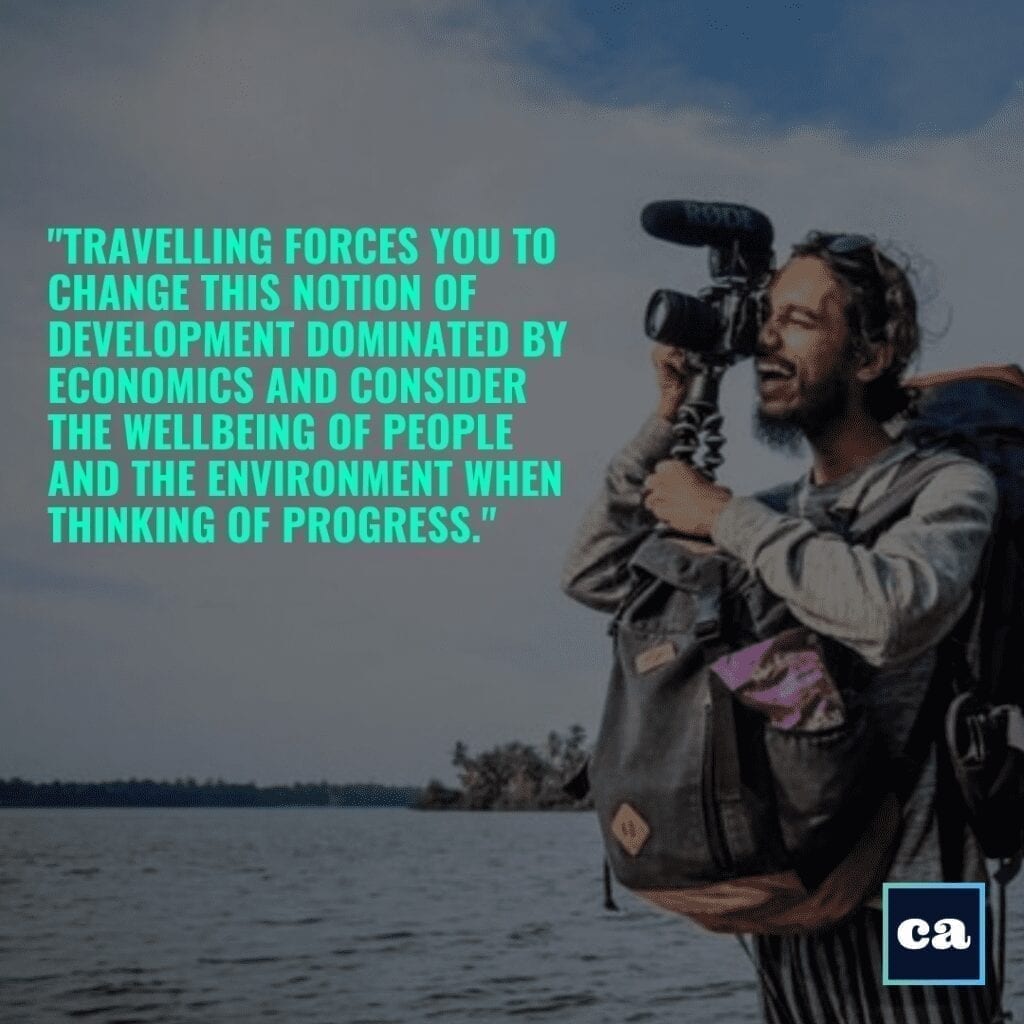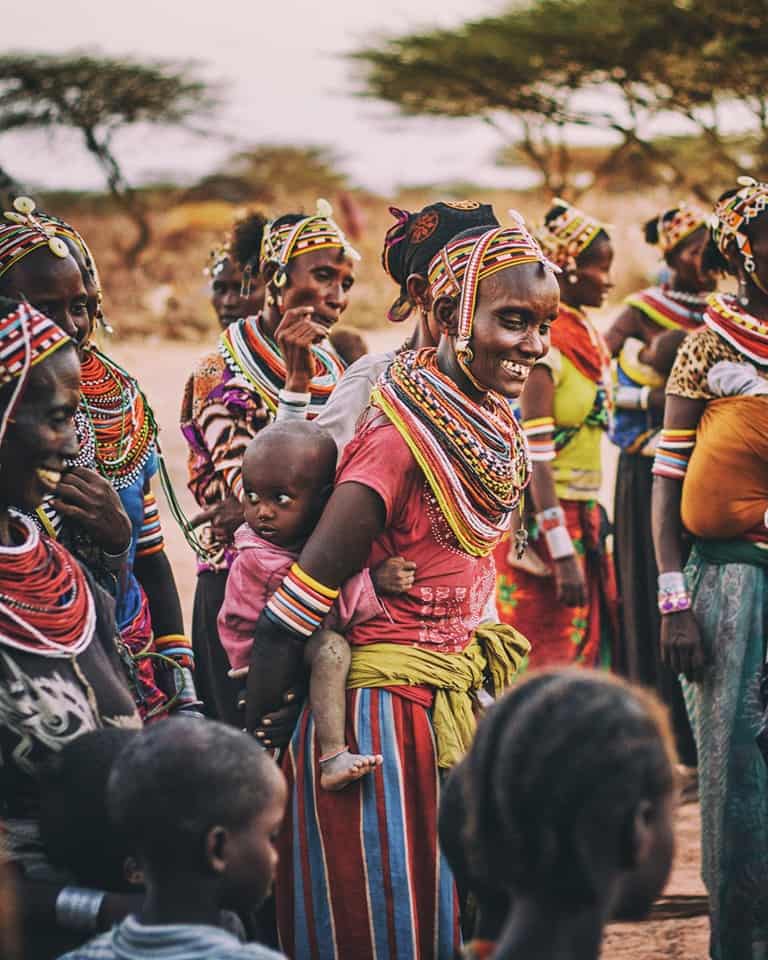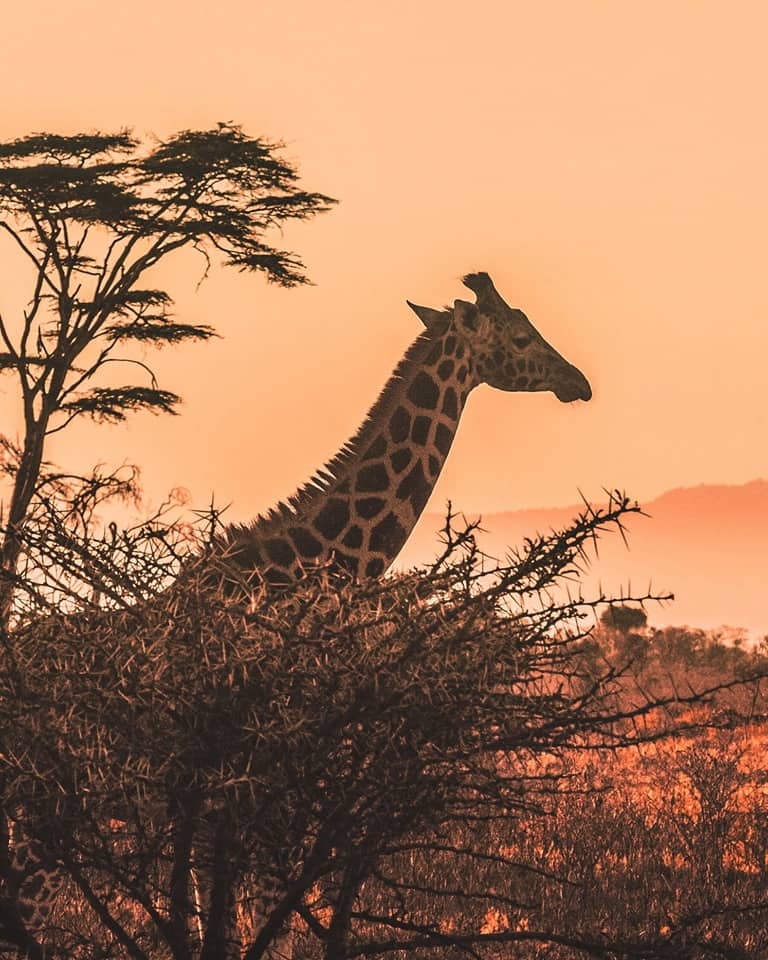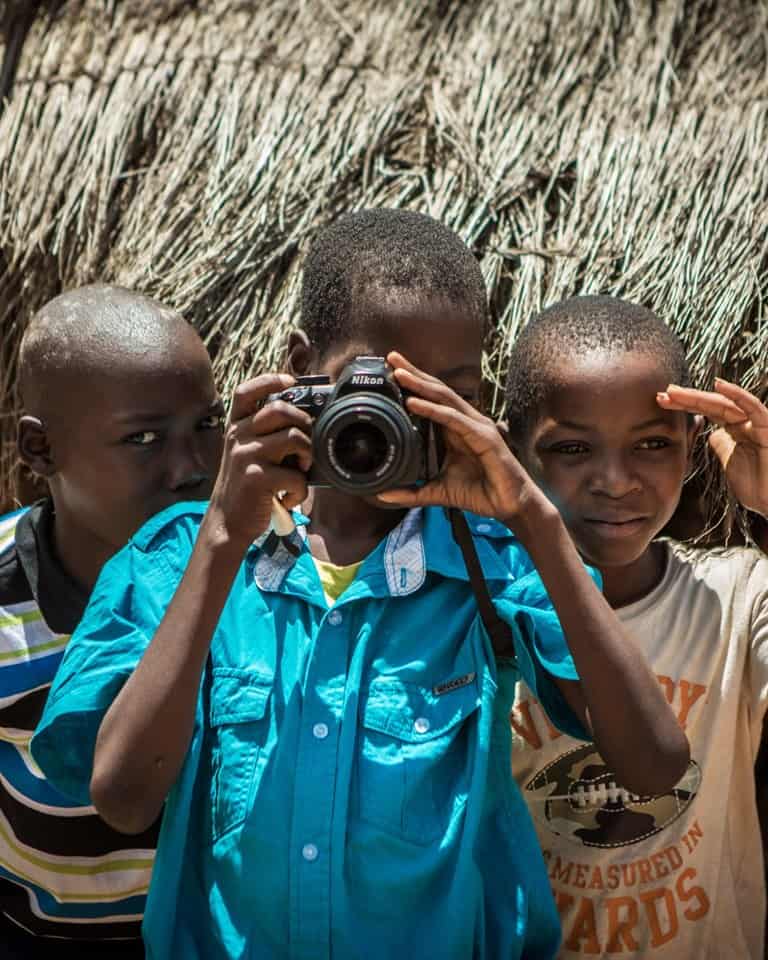Jigar Ganatra is the 22-year-old global citizen we need to change the world. Born and raised in Tanzania, with family heritage hailing from Gujarat, India, Jigar has spent the last few years sharing the stories of inspiring people he’s met in countries such as India, Peru, and Mexico. His love for bringing people together through the power of storytelling has led him to receiving scholarships with infamous travel brands, and now launching his own travel organization, Halisia Travel.

Use CAUSEARTIST2019 for 10% off your trip. 😀
Halisia Travel offers immersive travel experiences for aspiring photographers and filmmakers. Participants are provided professional guidance to enhance their abilities in telling authentic and captivating stories that mainstream travel content fails to capture. The organization is changing the way we see the world and has launched its first two trips of the year to Tanzania. During these travel programs, participants will be led by the Halisia local team to explore the real Tanzania, and capture impactful stories that will lead them to becoming professional storytellers.
Halisia aims to make filmmaking and photography accessible to all, while transforming negative stereotypes, and helping cultivate a community of global travellers who respect local communities and minimizing their carbon footprint. The organization also uses 15% of profits to provide scholarships to travel writers, photographers and filmmakers from developing countries who need financial aid in creating impactful projects.
See below a Q&A with Halisia Travel Founder and Programs Director Jigar Ganatra, and be sure to check out their upcoming trips to Tanzania here!
What inspired Halisia Travel?
In 2017, I won a “money can’t buy” opportunity to be mentored by a professional filmmaker named Brian Rapsey through the World Nomads Travel Film Scholarship. Spending 2 weeks with Brian in a foreign country on assignment making a short film was one of my most life-changing experiences. It transformed me from an amateur aspiring filmmaker to a professional, now equipped with the skills to tell impactful stories.
I realized how powerful it is to have a mentor on the field guiding you step-by-step and shortening your learning curve by years if not decades. It teaches you specialized skills like how to deeply connect with your subject and coax a truly riveting story that stands out from the rest of the travel content which is saturated with superficial videos with no real meaning. I was very fortunate to win the scholarship because it taught me a type of filmmaking that can’t be learned in film school nor online. I knew I had to share the invaluable skills my mentor imparted on me with others equally as thirsty to take their storytelling to the next level and so I launched Halisia Travel’s film & photo workshops.

How is Halisia Travel changing the narrative around travel in Africa, specifically in Tanzania?
The world’s image of Africa is really warped. From the lack of diversified news coverage, to movies about corruption, civil war and destitute. Heck, even the physical representation of Africa’s size on the mercator map is way out of scale! It really is the dark continent that people know very little about. The world could really benefit from shining light on things such as the contagiously festive spirit of African people, the unique groove of the traditional music and dance, the exquisite cuisine, the awe-inspiring belief systems and philosophies, as well as the revolutionary ideas of our citizen leaders. These are all things that you deeply immerse in when you join the thoughtfully designed filmmaking and photography workshops with Halisia Travel.
In Tanzania, tourism is very big… but it is also very one-sided. When people come to Tanzania, they come on safari, often through a foreign tour company, and stay in luxury resorts that give them a prepackaged experience far from the truth. Tourists don’t connect to local people or hear their stories. And hence miss out on an incredible opportunity to transform their perspectives and end up perpetuating the same incomplete images.
Halisia is a Swahili word that roughly translates to “the authentic essence”, and it is precisely what we want to elicit through our filmmaking and photography workshops. Our tourism model involves local communities in destinations that are not typically explored. We strive to enrich the narrative by creating content that will garner empathy, and bridge the gap between the diverse hearts of the world.

Why do you believe accessibility in storytelling is so important?
One of the outcomes of today’s rapidly globalizing world is cultural convergence. Increasingly, we are all consuming the same information, and predominantly that is coming from American owned media. We are under a threat of cultural sameness and now more than ever we need a variety of voices in the global mediascape.
Unfortunately, most people from Developing Countries like myself don’t have the accessibility to influence the narrative and are outpowered by the dominant voices. It is not that we don’t have stories to tell or are not able to tell stories – in fact we have been telling stories for millennia and are yearning to share them with the world – it is just that most of us don’t have the skills necessary to penetrate through the hegemonic discourse. What makes the world so awesome is that it is made of so many different stories so why shy away from them?
Use CAUSEARTIST2019 for 10% off your trip. 😀
Tell us about your Developing Storytellers Grant.
The Developing Storytellers Grant is a monetary award for people in developing countries who are eager to transform the image of their country. It is empowering suppressed voices on the grassroots level to bring their storytelling project to life. 15% of the profits generated from Halisia Travel go directly into this fund. Anyone can apply – the only criteria is that it is for a story that will make a positive impact on the way that we see the world. The reason that this is something revolutionary is that we need to make filmmaking and photography more accessible in the developing world if we want to avoid the looming danger of cultural sameness and enrich the global mediascape.

How do you think travel can change the way we approach development?
When I was studying International Studies in university, I was taught that development is about the growth of an economy and an increase in the standard of life of a country. What I’ve learned from my own travels is that development and progress are very subjective concepts. When I travelled to the Amazon rainforest, I realized that what my professors taught about economic growth as a measure of development is very problematic.
On paper, the Amazon is developing, there is a lot of investments coming in, and the GDP is rising, but when I was on the ground I saw how habitats were being destroyed, people were being displaced and rivers were being polluted in the name of progress. Travelling forces you to change this notion of development dominated by economics and consider the wellbeing of people and the environment when thinking of progress.
It makes you realize that there is no one “standard of living”, but that there are many different ways of life. It puts empathy in your heart and teaches you to respect differences – and for me these are much better measures of development.
What are three key Halisia Travel takeaways that you believe are most valuable to your program participants?
- The voices of the people are far more important than the cinematic shots and beautiful transitions when it comes to making a truly awesome film or photograph.
- There are so many intricately intertwined stories in one place and diversity in narrative is key if you want to stand out from the rest.
- Travel is as much an inward journey towards one’s own truth as it is about going from one incredibly amazing place to another.
Listen to Causeartist podcasts here.
Latest Post
- What are Plant Based Fibers
- 7 Sustainable and Eco Friendly Floss Options
- Anshul Magotra: How Social Innovation Circle Supports Impact Entrepreneurs
- Causeartist Brief – U.S. Department of Energy x Google, Bezos Centers for Sustainable Protein, Oregon Biochar Solutions
- Evidencity: Pioneering the Fight Against Modern Slavery Through Tech









